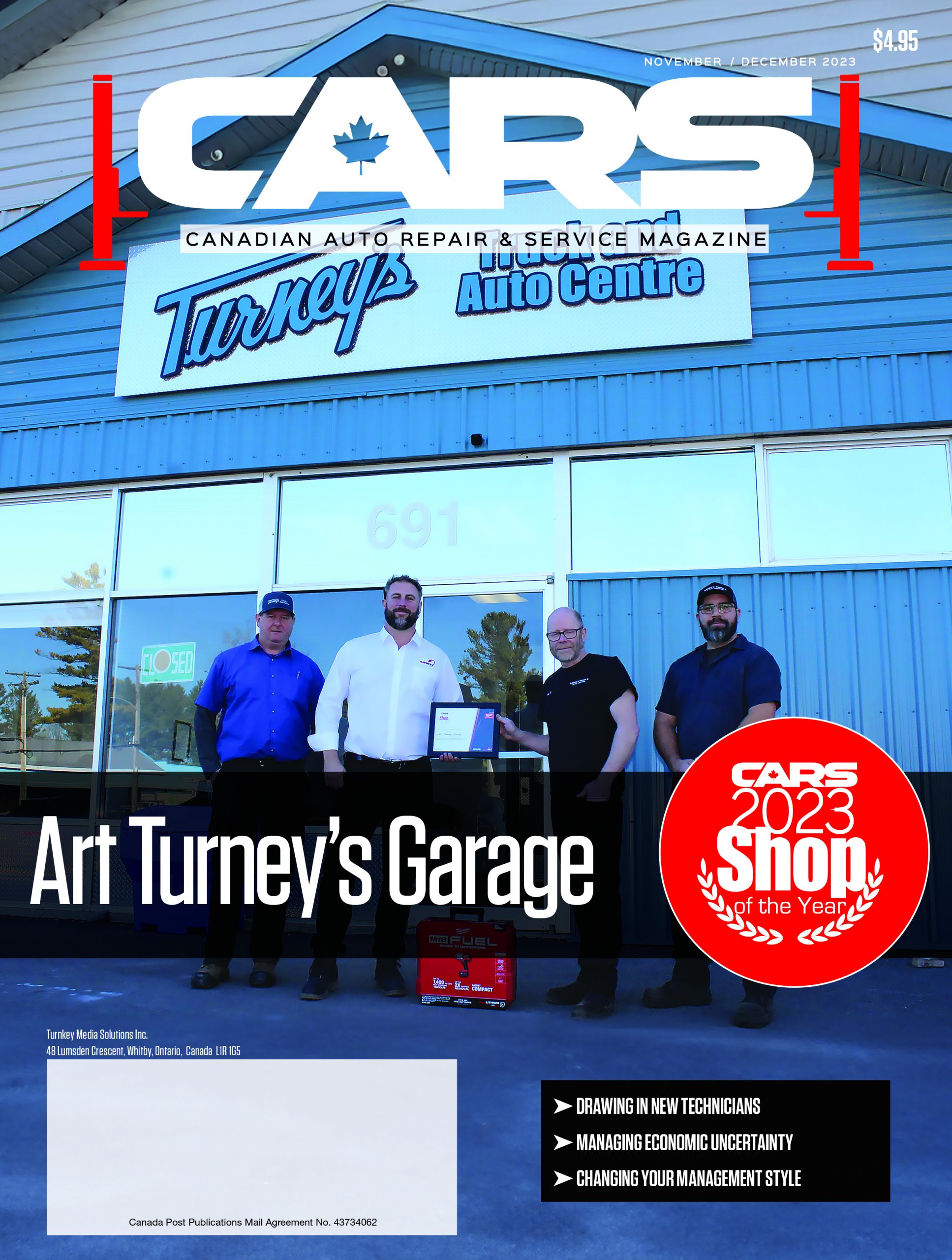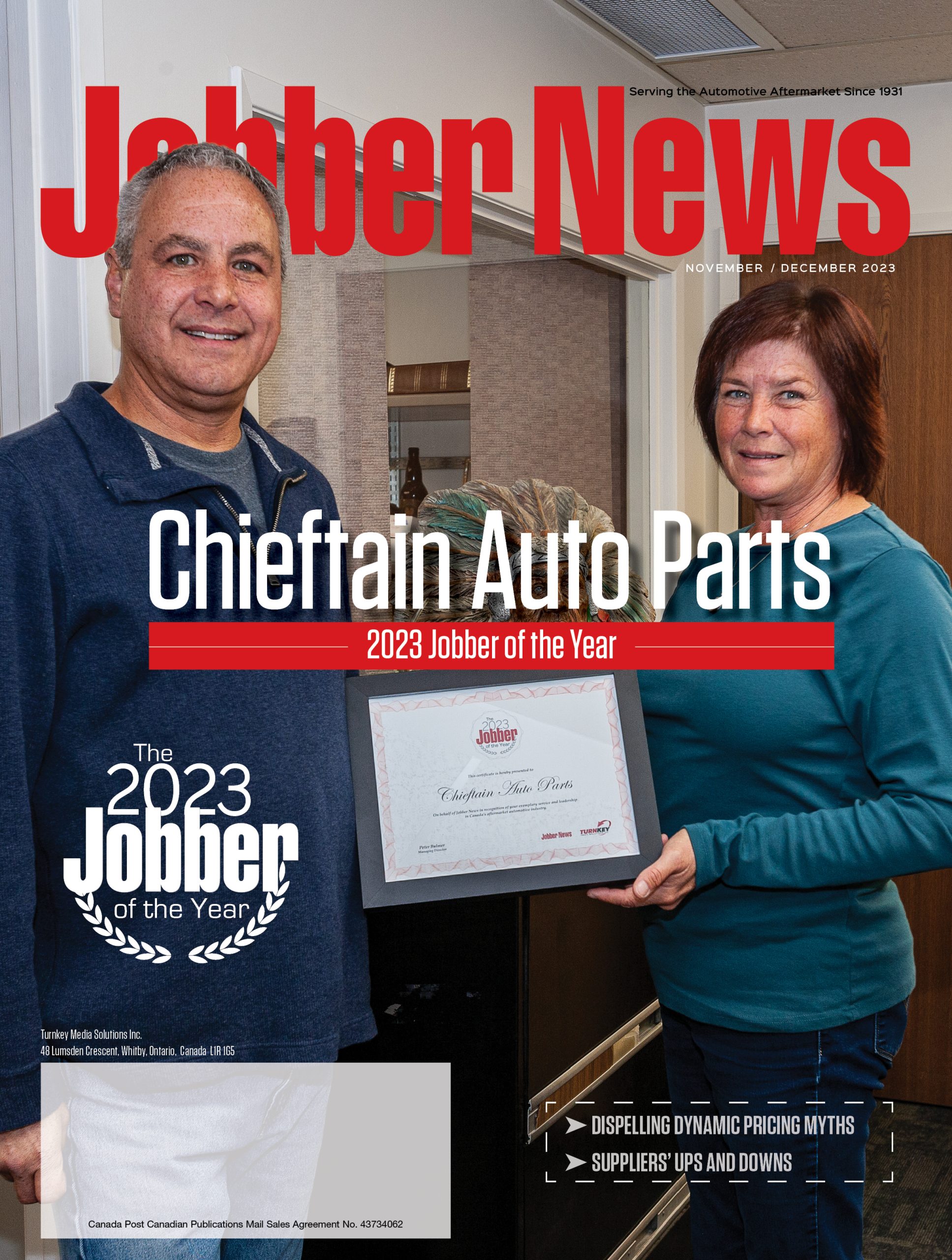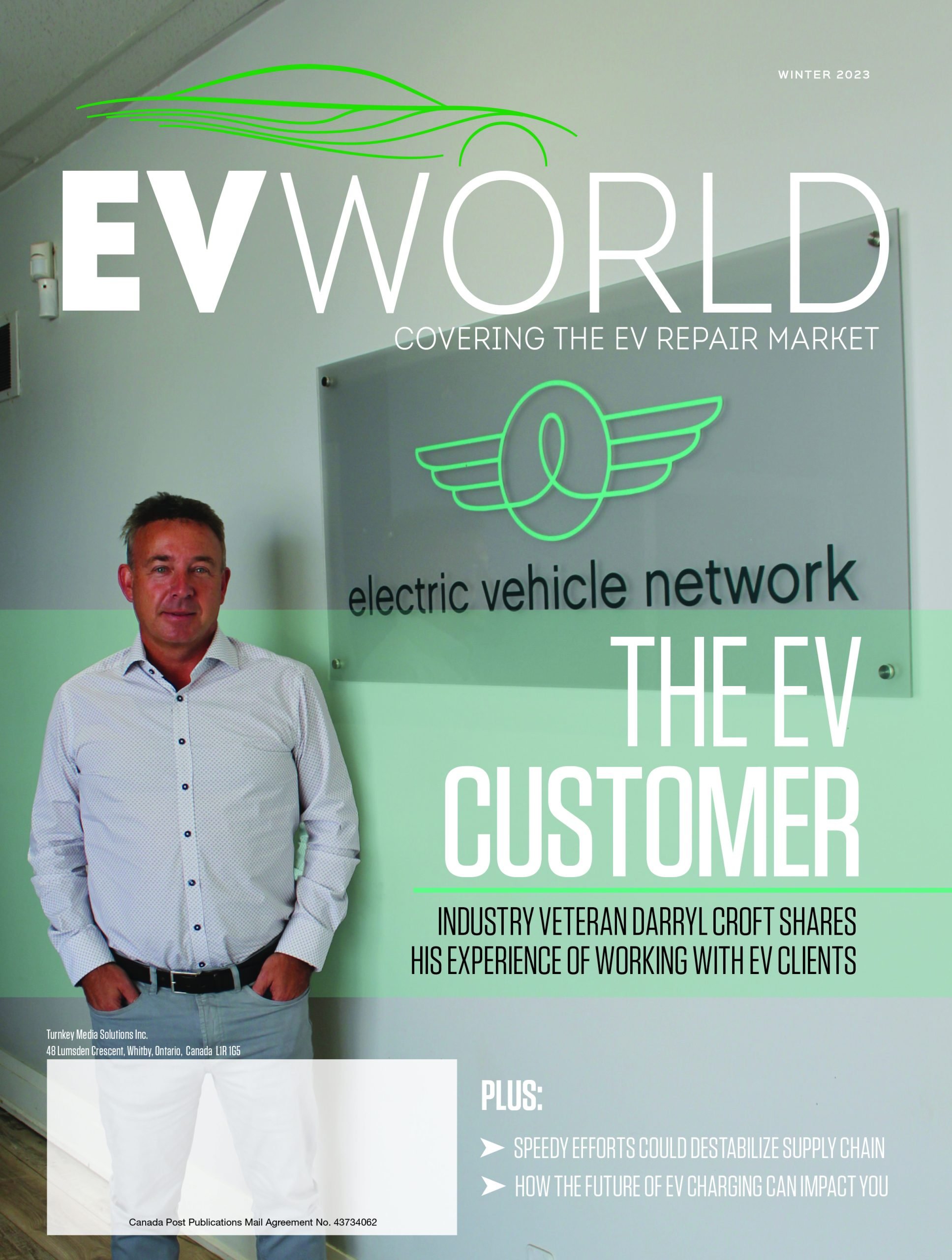
New study offers tips for attracting tomorrow’s buyers
Attracting young shoppers is one of the keys to modern retailing.
 Automotive retailers that are not tied to dealerships have a built-in advantage when it comes to attracting younger customers.
Automotive retailers that are not tied to dealerships have a built-in advantage when it comes to attracting younger customers.
Repeated surveys have shown that millennials – those born between 1981 and 2000 – are less suspicious of smaller shops than they are of large corporations, and that they like to support independent businesses.
This is certainly borne out in a recent study by the Automotive Industries Association of Canada (AIA), working with Quorus Consulting Group. The recently released “Understanding Millennials” report found that Canadian millennials value independent auto service providers over dealerships when it comes to value for money and trustworthiness.
Fifty-three percent of respondents said independent ASPs offered better value for money, compared to only 19% who said dealerships offered better value for money.
On trustworthiness, independents edged out dealerships by six percentage points (34% for independent ASPs, 28% for dealerships).
The vast majority of millennials (62%) appear to use both dealerships and independent ASPs for their vehicle needs. However, among those who have picked a side, dealerships get the edge. Twenty-one percent of respondents use dealerships exclusively, while only 17% use independents exclusively.
The study offers a “quick profile of young Canadian vehicle owners,” and is based on an online survey in 2019 of over 2,000 Canadian adults – 330 of them millennials (aged 25-34).
Known for being
less loyal to
particular brands,
millennials are also
highly influenced
by a variety of review,
comparison, and
communication tools.
Among respondents, 48% say they stay on top of maintenance and repair issues, but 46% acknowledge that while they are generally attentive, they things slide from time to time.
Apparently, more male millennials admit that they feel helpless when they bring their vehicles in for maintenance and repair. Some 52% of men strongly agreed with that sentiment, while only 46% of women said the same.
The report offers a wealth of information on how to impress millennial buyers, what factors build trust, and what contributes to their purchase decisions.
It also discusses perceptions of e-tailing, where their online dollars are spent, and what attracts their attention.
As for vehicle data, three in four millennials said that before taking the survey, they were unaware of the amount and the value of the data produced by their vehicles, nor did they consider who is the rightful owner of that data.
The authors of the report suggest that “millennial vehicle owners represent somewhat of a perfect storm for ASPs” in that they generally consider vehicle maintenance and repair a medium to low priority in their lives, and are comfortable attempting their own repairs and purchasing parts online.
However, among those who are do-it-for-me customers, four out of five of them will go to independent shops.
The acceptance of independent shops comes as no surprise to those who have studied millennial buying habits.
Known for being less loyal to particular brands, they are also highly influenced by a variety of review, comparison, and communication tools. With an estimated purchasing power of US$600 billion, they rely on social media to help them develop their shopping habits. Retail options are funneled through apps on their phones and digital contact with peers.
According to The Center for Generational Kinetics – a research firm that specializes in Gen-Y and Gen-Z attitudes – the hierarchy of communication for millennials runs in the following order:
- Texts and texting apps
- Social media
- Phone calls
- In-person interactions
Their thought-process runs contrary to what has worked for previous generations (particularly Baby Boomers, but also their close cousins, Gen-Xers), so modern marketing efforts have to be reconsidered.
Not only do millennials use new approaches to make purchase decisions, they also employ different measuring tools. Cheap does not trump quality. Quality does not trump convenience. Convenient does not beat ethical. And ethics are verified by peers.
In addition, millennials tend to care more deeply about social issues than other generations do, particularly human rights, economic inequality, animal welfare, and environmental protection.
Storytelling is an ideal way to communicate your values to them, either on your website or in your online marketing efforts.
Authenticity is critical, though, because nothing will repel them more than realizing you are paying lip-service to a cause just to reap the financial benefits.
In all things, be transparent in your advertising, your processes, and your interpersonal relationships. Let them know how you work, and where your priorities are. If social or environmental issues are important to you, say so. But don’t fake it. Getting caught out will make millennials feel duped and will kill your brand.
Communicate the value of doing business with you by answering what’s in it for them… and what’s in it for society.
According to a report by public policy researchers at the Brookings Institute, millennials will occupy approximately 75% of the North American job market by 2025. Attracting their loyalty will increasingly be a key to modern retailing success.
The independent automotive world would do well to build on the foundation of trust it already has to create loyal consumer base.
.png)








Have your say: